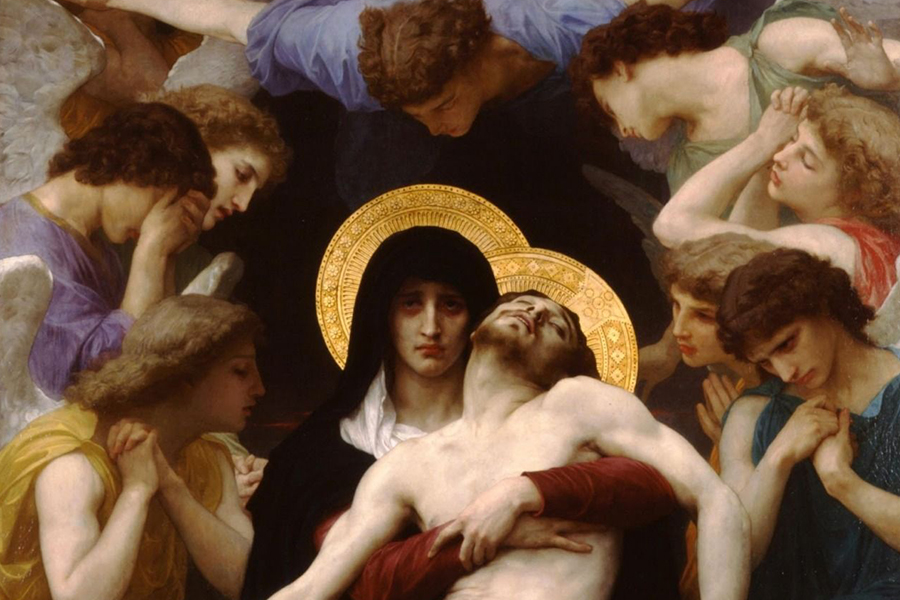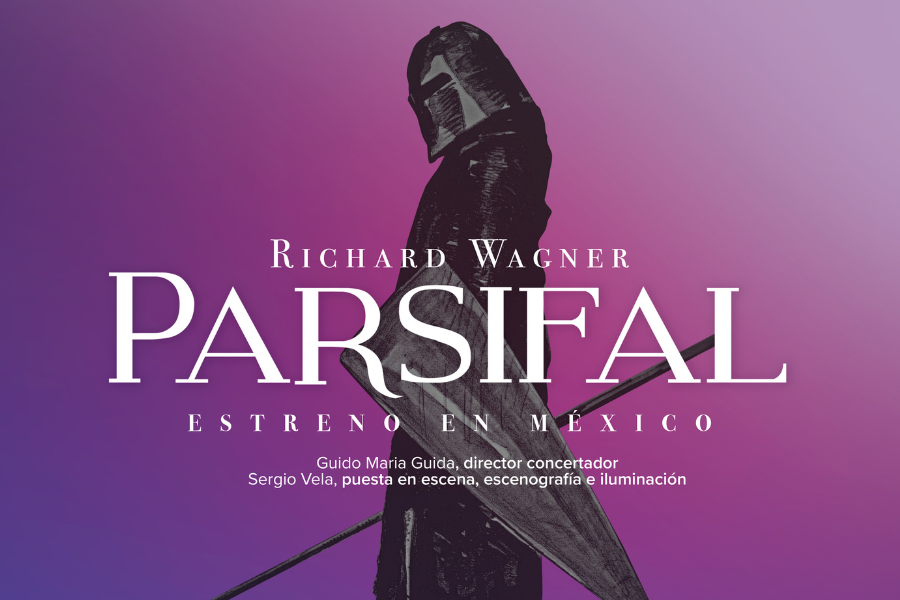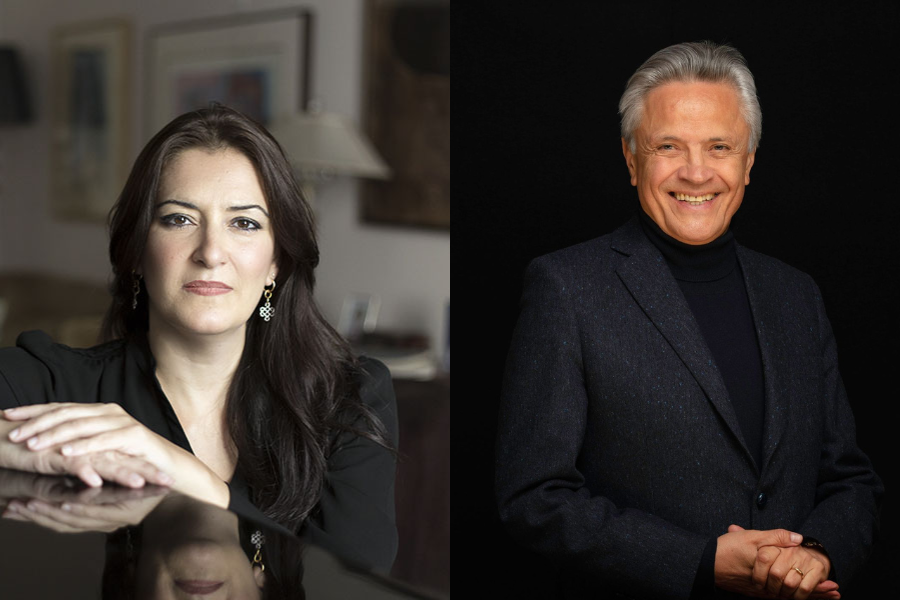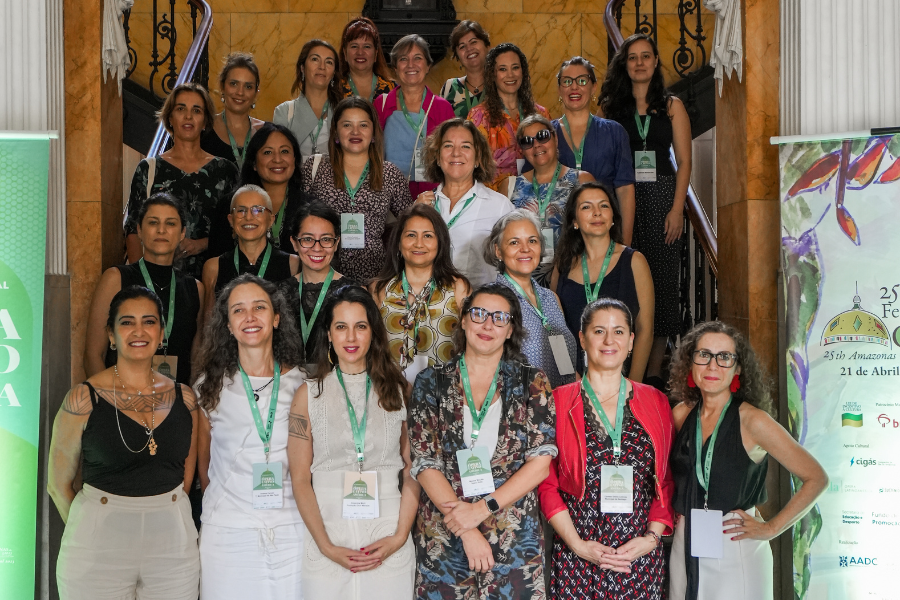Baroque opera laboratory presents Mater Dolorosa in Manaus

The work of Giovanni Pergolesi, written in 1736, is re-read by the stage director Átila de Paula through the pastiche format, with a scenography that alludes to the problems of the current world. Mater Dolorosa is the result of a work developed by the Baroque Opera Laboratory of the Festival Amazonas de Ópera of Manaus.
.
With an aesthetic full of symbolism, the opera Mater Dolorosa will debut at the 22nd Festival Amazonas de Ópera (FAO), this Saturday 25th May at the Teatro Amazonas. Átila de Paula in charge of the stage direction of the production, promises to present a work to bring the audience to a very current reflection, mixing the repertoire of the seventeenth and eighteenth centuries with a completely innovative approach.
.
Mater Dolorosa is born from the re-reading of the immortal context of Stabat Mater by the Italian composer Giovanni Pergolesi, who conscientiously portrays the pain of Mary when she sees her son Jesus on the cross.
According to the director Átila de Paula, the format of the presentation is the pastiche, a common practice in art and that cuts works and mixes styles, in a kind of rereading the work.“Pasticci, as they were known, were real inventive exercises theaters eighteenth century. Something like a potpourri of today, where famous pieces from various operas were organized to create a new narrative. Mater Dolorosa is precisely an inventive creation of a show, of varied works ” comments.
.
The plot of the show appropriates the events of the Passion of Christ and proposes a new vision, in several aspects, of Mary’s pain to see the suffering of her son. “We transport all biblical mythology to a contemporary symbolism, where Mother Nature reports that her pain was destroyed by her creation, humanity,” he added.

© Michael Dantas – SEC
Átila de Paula also points out that “the whole consists of an aesthetic full of symbolism. Mater Dolorosa reflects complex, amorous and conflictive social relationships, submerging in a deep anguish, which fatally reveals the end of Man and Nature, “he describes.
.
To give life to this work, two soloists take the stage, the soprano Dhijana Nobre and the mezzo-soprano Talita Azevedo. Both give voice to the unique character of Mother Nature, through the music of Stabat Mater by Pergolesi, a sacred cantata on whichrelies mainly Mater Dolorosa.
.
“The voice and the body of man, in turn, will be represented by the Experimental Ballet Body Dance l Amazonas, which will dramatize the diverse needs of the human being: conflict, love, social and fun. Mater Dolorosa is a challenge to a team of artists with multiple talents who, from a central idea of the plot, give life to an unprecedented work “, explains the director.
.
Mater Dolorosa is the result of a work developed by the Baroque Opera Laboratory, a project of the Ministry of Culture. According the teacher Marcelo de Jesus, artistic director of, FAO this is a unique project in Brazil and proposes revise repertoires of the seventeenth and eighteenth centuries with a new approach.
.
This is the third edition of FAO with the participation of the Laboratory. “The project has a great pedagogical importance: it is a bridge for young artists to achieve professional experiences on stage, becoming one of the important actions of continuity and formation of the Festival Amazonas de Ópera“, he clarified.

© Michael Dantas – SEC
Unlike the opera, which tells a story, Marcelo de Jesus explains that the concept of Mater Dolorosa presents the artistic thought in a different way. “Pergolesi’s work, in theory, was not written for that purpose, but Átila decided to put that song together with his idea and create the program, which has a very contemporary concept,” he added.
.
Átila de Paula holds a degree from the Claudio Santoro School of Arts and Crafts, a space maintained by the Government of Amazonas, and has a bachelor’s degree at the Federal University of Rio de Janeiro. He graduated in “Historical Key Instruments”, at the Hochschule für Musik Karlsruhe, in Germany.
.
Tickets for the FAO 2019 are on sale at the box office of the Teatro Amazonas and on the site of digital tickets (www.bilheteriadigital.com/teatroamazonas), with values ranging from R $ 2.50 to R $ 60.







